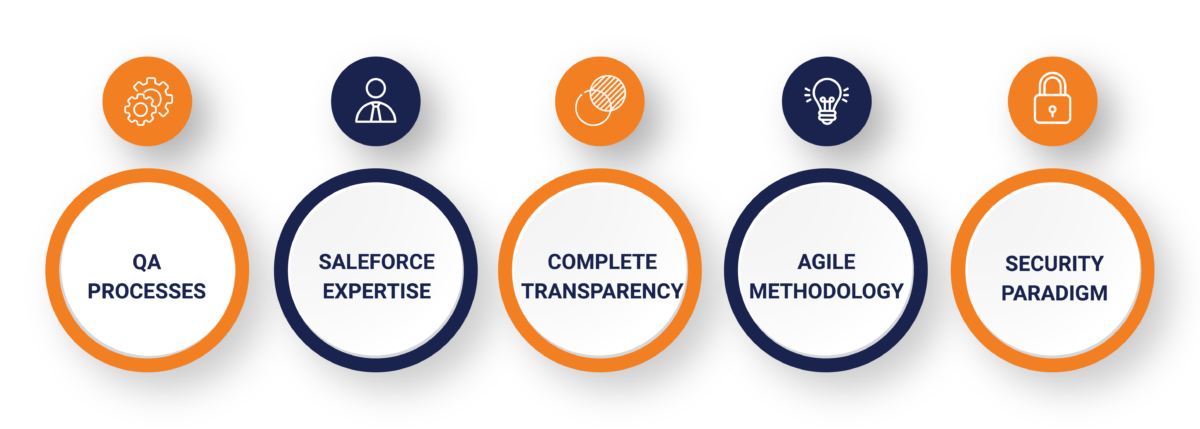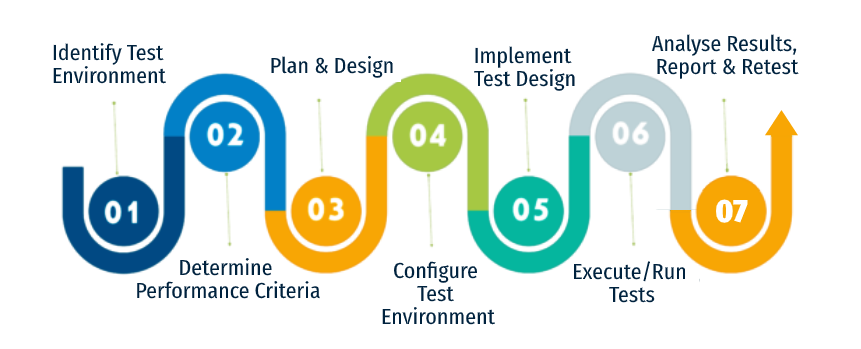
What is Test.isRunningTest () in Salesforce? The Test.isRunningTest () method is used to identify, if the piece of code being executed is invoked from a Test class execution or from other artefacts such as a Trigger, Bacth Job etc. Returns true if the code being executed is invoked from a test class otherwise returns a false.
How do I run Salesforce apex test methods?
You can run Apex test methods in the Developer Console, in Setup, in the Salesforce extensions for Visual Studio Code, or using the API. You can run these groupings of unit tests.
What is unit testing in Salesforce?
Testing is an important part of the development process. Before you can deploy Apex or package it for the Salesforce AppExchange, the following must be true. Unit tests must cover at least 75% of your Apex code, and all of those tests must complete successfully.
What is test setup method in testing framework?
If a test class contains a test setup method, the testing framework executes the test setup method first, before any test method in the class. Records that are created in a test setup method are available to all test methods in the test class and are rolled back at the end of test class execution.
What is the use of istest annotation in Salesforce?
Use the isTest class annotation to define classes that only contain code used for testing your application. If your test methods are contained within their own classes and the Apex class only contains test methods, it is ideal to use the isTest annotation.

What is test method in test class Salesforce?
Test methods must be defined in test classes, which are classes annotated with isTest. This sample class shows a definition of a test class with one test method. Test classes can be either private or public. If you're using a test class for unit testing only, declare it as private.
Is test running Salesforce?
isRunningTest() - Returns true if the currently executing code was called by code contained in a test method, false otherwise. Use this method if you need to run different code depending on whether it was being called from a test. 1.
What is test annotation in Salesforce?
The most common test related annotations are @isTest and @testSetup. @isTest – used at the Class or Method level to indicate it only contains code that supports Test Coverage. Classes defined with this annotation do not count against your organization limit for Apex code.
What are the different methods in test class in Salesforce?
Methods of your test class have to be static, void and testMethod keyword has to be used.
Is test run in Apex?
Note You can speed up Apex test runs by opting out of collecting code coverage information when you want faster feedback on pass or fail status rather than coverage data. When you opt out, no data about Apex test coverage is stored.
How do you call a method in test class in Salesforce?
You can call the method from a test class, similar to how you call method from other classes. ClassName classInstanceObj = new ClassName(); classInstanceObj. MethodName();
Is test method deprecated?
The testMethod keyword is now deprecated. Use the @isTest annotation on classes and methods instead. The @isTest annotation on methods is equivalent to the testMethod keyword. Classes and methods defined as @isTest can be either private or public .
Can test methods be private in Salesforce?
Test class and method default access is private, no matter to add access specifier. Classes with @isTest annotation can't be a interface or enum. Test method code can't be invoked by non test request . Stating with salesforce API 28.0 test method can not reside inside non test classes .
What is test setup in Salesforce?
A TestSetup method is the first method that is executed in an Apex test class, any records created in the TestSetup method are available to all methods in the same Apex Test class.
Why do we need test class in Salesforce?
Testing is an important part of the Software Development Life Cycle (SDLC). Before moving the code in production, Salesforce ensures that your code has minimum 75% code coverage. This means that you have tested your code and it would not break in the production environment.
How do I create a test data in Salesforce?
You can create and insert the necessary records.Click. ... Select File > New > Apex Class.Name the class DataGeneration_Tests .Replace the contents of the class with the following code. ... Click File > Save, then Test > New Run.Select DataGeneration_Tests, then select testBruteForceAccountCreation.Click Run.
How do I write a test case in Salesforce?
Important considerations:Use the @isTest annotation.The test class starts its execution from the "testMethod".Cover as many lines as possible.At least 75% of your Apex code must be covered by unit tests, and all of those tests must complete successfully.Use System. ... Set up test data:More items...•
What is Apex in Salesforce?
Apex is a strongly typed, object-oriented programming language that allows developers to execute flow and transaction control statements on the Salesforce Platform server , in conjunction with calls to the API. This reference guide includes built-in Apex classes, interfaces, enums, and exceptions, grouped by namespace.
What is static resource in Salesforce?
You must create the static resource prior to calling this method. The static resource is a comma-delimited file ending with a .csv extension. The file contains field names and values for the test records. The first line of the file must contain the field names and subsequent lines are the field values. To learn more about static resources, see “Defining Static Resources” in the Salesforce online help.
How to mock a callout?
To mock a callout if the code that performs the callout is in a managed package, call Test.setMock from a test method in the same package with the same namespace.
What is the purpose of the InstallHandler test?
Tests the implementation of the InstallHandler interface, which is used for specifying a post install script in packages. Tests run as the test initiator in the development environment.
What is the enable change data capture method?
The enableChangeDataCapture () method ensures that Apex tests can fire change event triggers regardless of the entities selected in Setup in the Change Data Capture page. The enableChangeDataCapture () method doesn’t affect the entities selected in Setup.
Can you query organization data in a test?
By default, tests can’t query organization data unless they’re annotated with @isTest (SeeAllData=true). Creating price book entries with a standard price requires the ID of the standard price book. Use this method to get the standard price book ID so that you can create price book entries in your tests.
What happens when you insert multiple Apex test queue items in a single bulk operation?
If you insert multiple Apex test queue items in a single bulk operation, the queue items share the same parent job. This means that a test run can consist of the execution of the tests of several classes if all the test queue items are inserted in the same bulk operation.
How to verify Apex code?
To verify the functionality of your Apex code, execute unit tests. You can run Apex test methods in the Developer Console, in Setup, in the Salesforce extensions for Visual Studio Code, or using the API. You can run these groupings of unit tests. To run a test, use any of the following:
How does the developer console work?
In the Developer Console, you can execute some or all tests in specific test classes, set up and run test suites, or run all tests. The Developer Console runs tests asynchronously in the background, unless your test run includes only one class and you’ve not chosen Always Run Asynchronously in the Test menu. Running tests asynchronously lets you work in other areas of the Developer Console while tests are running. Once the tests finish execution, you can inspect the test results in the Developer Console. Also, you can inspect the overall code coverage for classes covered by the tests.
What is asynchronous testing?
Running tests asynchronously lets you work in other areas of the Developer Console while tests are running. Once the tests finish execution, you can inspect the test results in the Developer Console. Also, you can inspect the overall code coverage for classes covered by the tests.
Can you run unit tests on Apex?
You can run unit tests on the Apex Test Execution page. Tests started on this page run asynchronously, that is, you don 't have to wait for a test class execution to finish. The Apex Test Execution page refreshes the status of a test and displays the results after the test completes.
Can you run tests asynchronously?
These objects let you add tests to the Apex job queue and check the results of the completed test runs. This process enables you to not only start tests asynchronously but also schedule your tests to execute at specific times by using the Apex scheduler. See Apex Scheduler for more information.
How much of Apex code must be covered by unit tests?
Unit tests must cover at least 75% of your Apex code, and all of those tests must complete successfully. Note the following. When deploying Apex to a production organization, each unit test in your organization namespace is executed by default. Calls to System.debug are not counted as part of Apex code coverage.
How to add a method to HelloWorldTestClass?
To add all methods in the HelloWorldTestClass class to the test run, click Add Selected. Click Run. The test result displays in the Tests tab. Optionally, you can expand the test class in the Tests tab to view which methods were run. In this case, the class contains only one test method.
Is System.debug counted in Apex?
Calls to System.debug are not counted as part of Apex code coverage. Test methods and test classes are not counted as part of Apex code coverage. While only 75% of your Apex code must be covered by tests, don’t focus on the percentage of code that is covered.
